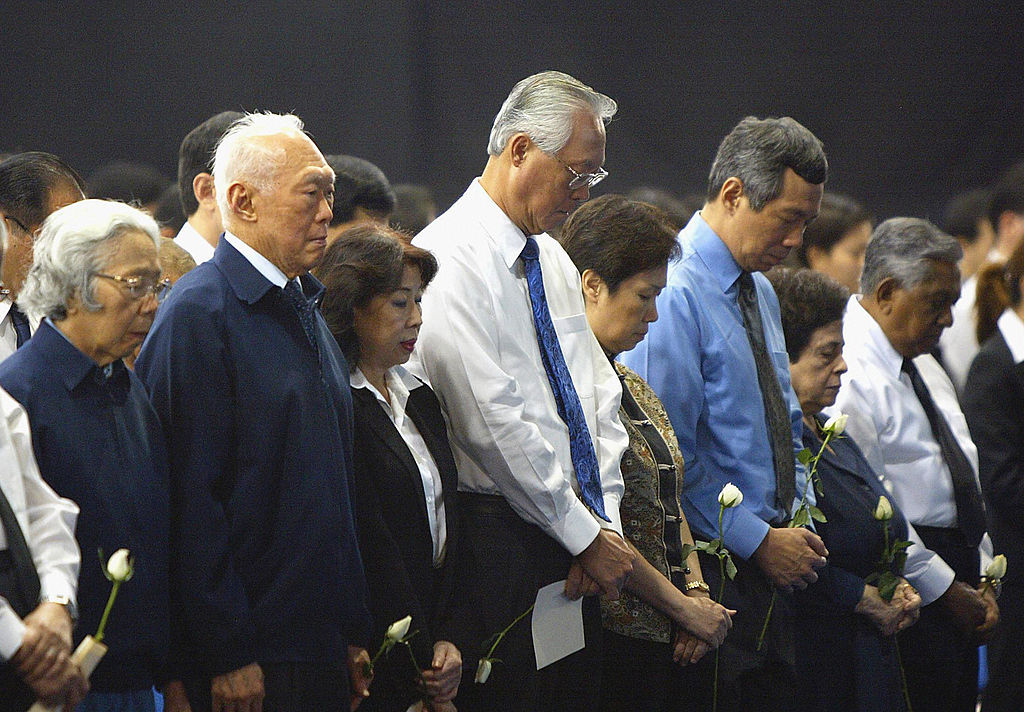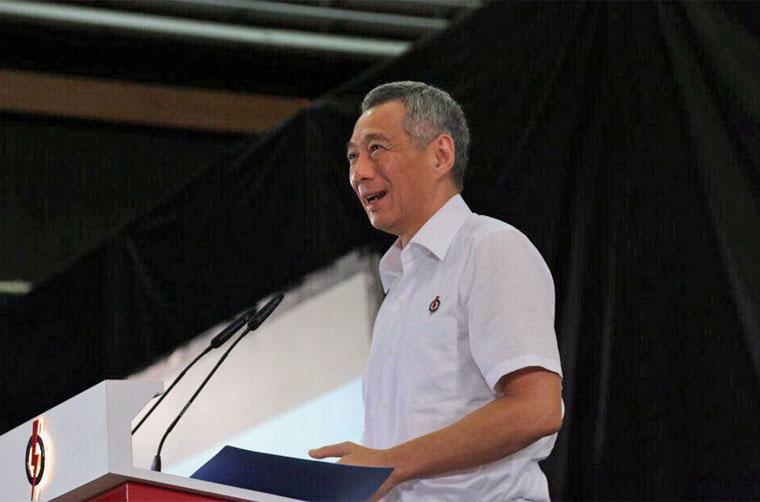Everyone who likes to keep an eye out on politics and succession wants to know who Singapore's next Prime Minister will be.
And we're not just talking about Singaporeans -- in a recent interview with Prime Minister Lee Hsien Loong in Hangzhou, where he went for the G20 summit, Chinese business magazine Caijing was eager to see if he had any additional nuggets of info he could share about this.
And share he did — here's what we learned from the published transcript in summary:
1) Qualities of the next leader, according to PM Lee:
- He must have "that judgement",
- "that experience", and
- "the leadership ability".
- To "understand problems",
- "analyse them", and
- "connect with Singaporeans and explain to people", and
- "mobilise people to work together, to achieve our national goals".
A mobiliser and a communicator, he summarises. But also:
- "a doer",
- "an analyst",
- "an implementer", and
- "a team builder".
We can already imagine his six friends going "Wah xiong".
2) Insights into how Singapore's Prime Ministers handed over to one another over the years:
 SINGAPORE, SINGAPORE: Singaporean leaders with their spouses, Minister Mentor Lee Kuan Yew (2nd L), Senior Minister Goh Chok Tong (C), Prime Minister Lee Hsien Loong (3rd R) and President S.R Nathan (far R) attend a one minute silence for the tsumani victims during a Tsunami Disaster Memorial Service in Singapore, 09 January 2005. More than 5,000 people were expected to attend the memorial service in Singapore in remembrance of the nearly 160,000 who died in last month's Asian tsunami disaster. AFP PHOTO/ROSLAN RAHMAN/Getty Images
SINGAPORE, SINGAPORE: Singaporean leaders with their spouses, Minister Mentor Lee Kuan Yew (2nd L), Senior Minister Goh Chok Tong (C), Prime Minister Lee Hsien Loong (3rd R) and President S.R Nathan (far R) attend a one minute silence for the tsumani victims during a Tsunami Disaster Memorial Service in Singapore, 09 January 2005. More than 5,000 people were expected to attend the memorial service in Singapore in remembrance of the nearly 160,000 who died in last month's Asian tsunami disaster. AFP PHOTO/ROSLAN RAHMAN/Getty Images
In summary, the idea is as the outgoing Prime Minister prepares to hand over to the incoming ones, the key policies deciding the nation's direction are continually adjusted, and then later on dictated by the incoming leader and his younger batch of ministers.
- During the late Lee Kuan Yew's time, for instance, PM Lee said his father was able to stay in office for so long because his government's "policies did not stay static"; his style of governing too.
"So even though he was Prime Minister, until 1990, from around the mid-80s onwards, already increasingly, the policies were being set and pitched and implemented by the younger generation of leaders. So in 1990 when a new Prime Minster took over, Mr Goh Chok Tong took over from him, it was very smooth."
- The same went for the transition between former PM Goh and him, he added:
"And when I took over there was no surprise, and no sudden jerk or crashing of gears."
He goes on to stress the need for continual policy evolution:
"That is what I hope to do now – have younger Ministers and increasingly they will take the initiatives, they will make the pitch to the population and the population will get to know them. The content of the policies will also change, because it is a new generation, with new concerns, new interests, new perspectives on what the priorities are, and what is important, what is acceptable in the way of government action.
If we keep on adjusting this way, then we will always be able to maintain a stable, effective government. Otherwise if the government gets older and older, and the population remains young, I think then the gap will become wider and wider. It will not work."
Now, some potentially interesting details might have come from a couple of questions the magazine asked PM Lee about him and his late dad, but he would not be drawn into comparison between them.
Nonetheless, from Caijing's fourth and final question on the matter (of succession), we find one small hint to PM Lee's focus for Singapore in the coming few years:
"We are now living completely in a new generation, in a stable Singapore, in a not very certain world. And our job is not to turn things upside down, or build from scratch, but to build on what we have, transform it, and make it better and more suited for tomorrow."
You can read PM Lee's entire interview with Caijing here.
Top photo by Ng Yi Shu
If you like what you read, follow us on Facebook and Twitter to get the latest updates.
If you like what you read, follow us on Facebook, Instagram, Twitter and Telegram to get the latest updates.
